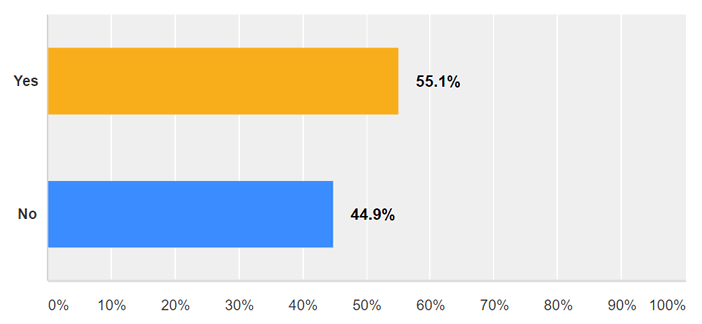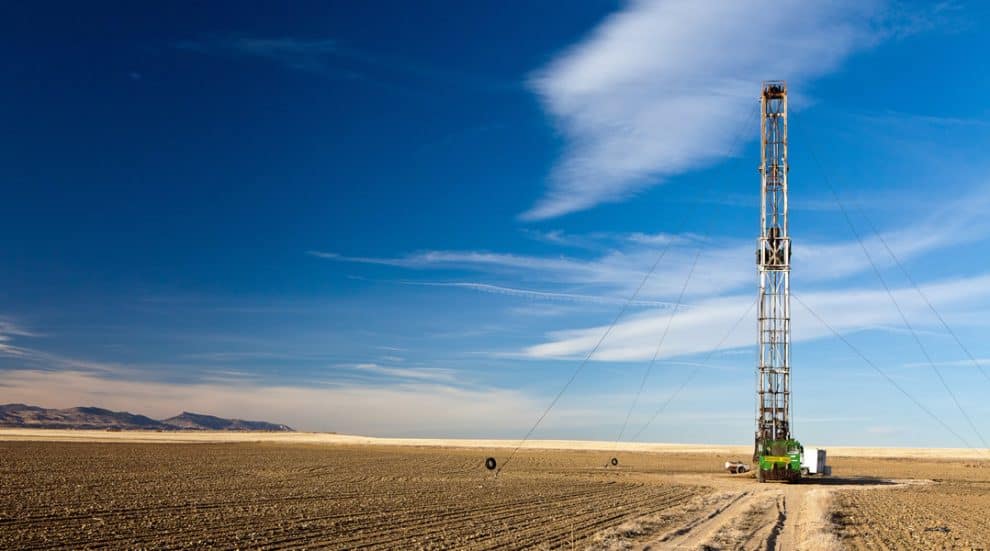Last month, the LANDTHINK Pulse posed the following question to our audience: Do you support the use of hydraulic fracturing (fracking) to extract oil and natural gas resources? Our informal online survey revealed that 55.1% of respondents think that the technique called hydraulic fracturing (fracking) SHOULD be used to extract oil and natural gas resources from deep within the earth. Fracking is a process that has been used commercially for about 65 years; it’s actually a technical procedure that is used after the well drilling has been completed. Hydraulic fracturing involves a high-pressure injection of “fracking fluid”, which consists of water, chemicals and proppants, deep underground. The purpose of the process is to stimulate the flow of the well and allow for greater volumes of oil or gas, trapped in deep rock formations, to be extracted.
In the last 15 years, the technique has been a hotly debated issue. Growing public awareness brought to the forefront the dangers associated with its use. Fracking- like that other “F-word”- doesn’t sound classy and makes a lot of people uncomfortable. The public has been worried and scared of hydraulic fracturing, largely due to movies such as “Erin Brockovich“, “Promised Land”, “GasLand”, and “FrackNation”, all films that brought fracking to the big screen and fueled the controversy. These films furthered the opinion that big oil and gas companies were reckless and unscrupulous, with little concern for what they were pumping into the ground. Based on the results of our survey, there appears to be shifting public opinion on hydraulic fracturing to a more favorable view.
This turned out to be a relatively divided issue among our audience. The Pulse revealed that 55.1% of those responding said “YES”, they do support the use of hydraulic fracturing. Coming in a close second, 44.9% of our audience answered “NO”, indicating they DO NOT support the use of fracking. Proponents of fracking have some valid arguments. Fracking lowers gas bills, creates employment opportunities, and the use of gas (as opposed to coal and oil) reduces greenhouse gases, and it increases GDP. Additionally, access to more natural gas means the U.S. is not reliant on foreign countries for fossil fuels. Opponents of hydraulic fracturing seems to think the cons outweigh the benefits. The biggest “con” being the health threat that can occur from contamination of the drinking water supply. All over the U.S., there have been verified cases of domestic wells being tainted- many claiming high methane levels caused their water to bubble, and even be ignited as it flowed from the tap. Other negative concerns are the massive amounts of water required for the process, especially in drought-prone areas of the country. There are also legitimate geological concerns. Studies have confirmed that fracking operations are linked to an increased propensity for earthquakes.
Here are the final results:

- 55.1 % said YES, they DO support the use of hydraulic fracturing
- 44.9% said NO, they DO NOT support the use of hydraulic fracturing
Thank you to everyone who participated and shared the Pulse with friends and connections in the land industry.
We are excited to introduce the new monthly LANDTHINK GET LAND SMART Sponsorship designed specifically to reward our VIP customers and provide the maximum amount of value. In association with the LANDTHINK Pulse, the GET LAND SMART Sponsorship will have your name radiating throughout the LANDFLIP network. Main features of the GET LAND SMART Sponsorship include your name, logo, and website link on the LANDTHINK Pulse page (all month), the opportunity to assist in creating your sponsored Pulse question (with LANDTHINK approval), promotion in the Pulse question results article on LANDTHINK.com (the following month) and much more. Only 3 monthly GET LAND SMART Sponsorships will receive the introductory price. This is a limited time offer, so contact us to learn more about this significant savings.
Do you have a suggestion for next month’s Pulse question? Submit your question here and we might choose yours!
In your opinion, should Hemp be grown as an agricultural commodity? We’d like to know your opinion! Click here to answer the July Pulse question.
This content may not be used or reproduced in any manner whatsoever, in part or in whole, without written permission of LANDTHINK. Use of this content without permission is a violation of federal copyright law. The articles, posts, comments, opinions and information provided by LANDTHINK are for informational and research purposes only and DOES NOT substitute or coincide with the advice of an attorney, accountant, real estate broker or any other licensed real estate professional. LANDTHINK strongly advises visitors and readers to seek their own professional guidance and advice related to buying, investing in or selling real estate.







We build a lot of habitat for trout. When we need more water from a well, we turn to either fracking or directional drilling. We’ve never lost one single trout due to fracking of water wells.
As far as movie documentaries go, it is very rare for any of them to be scientifically valid. We are engaged in a project right now where natural gas occurs naturally in a water well. There was no fracking.